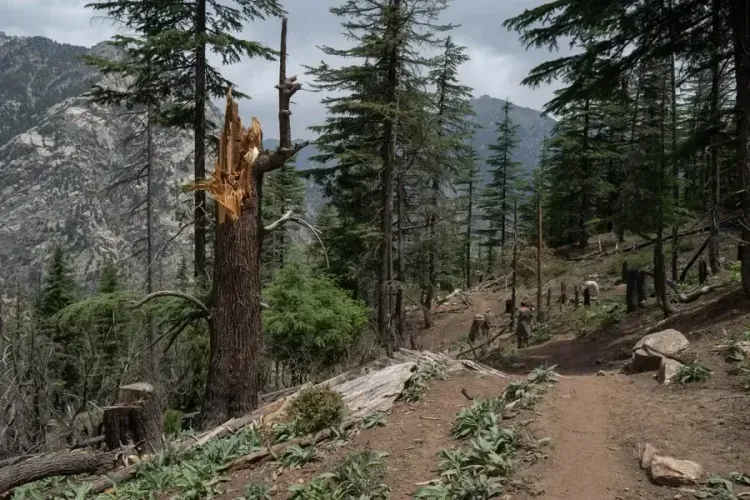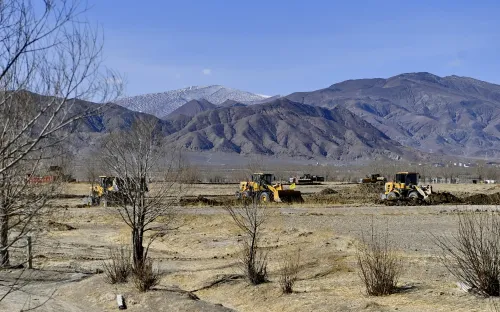Dispute Over Jungle Ownership Results in Casualties in Afghanistan

Synopsis
Key Takeaways
- Dispute over jungle ownership in Kapisa province.
- One individual killed, 21 injured in the clash.
- Police detained 35 villagers to restore order.
- Investigation ongoing to find responsible parties.
- Environmental degradation due to illegal logging in Afghanistan.
Kabul, Jan 19 (NationPress) A conflict regarding the ownership of a jungle in Kapisa province, located in eastern Afghanistan, resulted in the death of one individual and injuries to 21 others on Saturday, as reported by provincial police spokesperson Abdul Fatah Faiz on Sunday.
The confrontation arose between residents of two villages in the Alasai district on Saturday afternoon.
Consequently, one villager lost their life, and 21 others were injured, according to the Xinhua news agency.
The situation was brought under control after police arrived in the area and detained 35 villagers.
An investigation is currently ongoing to identify those accountable.
The Nuristan province of eastern Afghanistan serves as a vibrant oasis in a nation largely plagued by desertification. This region boasts tree-laden mountains and crystal-clear rivers flowing through verdant, narrow valleys. Together with the adjacent Kunar province, Nuristan is home to some of the most extensive, ancient, and ecologically rich forests in the area.
However, over the past few decades, relentless and often illegal logging has diminished many of these thriving ecosystems to mere remnants of their former glory. The remaining areas face serious threats as residents of these valleys become increasingly desperate for income amid dire economic conditions.
As erosion, flooding, and forest fires escalate across eastern Afghanistan at an alarming rate, numerous communities are beginning to realize that their homes, villages, and farmlands may not withstand the ecological repercussions of deforestation. Loggers themselves—many of whom are impoverished laborers with no alternative means of support—are confronted with a challenging decision: either abandon their primary source of sustenance or continue to ravage their own environment, jeopardizing their communities and challenging the notoriously harsh Taliban regime's logging ban.
This situation represents a complex network of conflicting needs, and the equilibrium is beginning to crumble.









